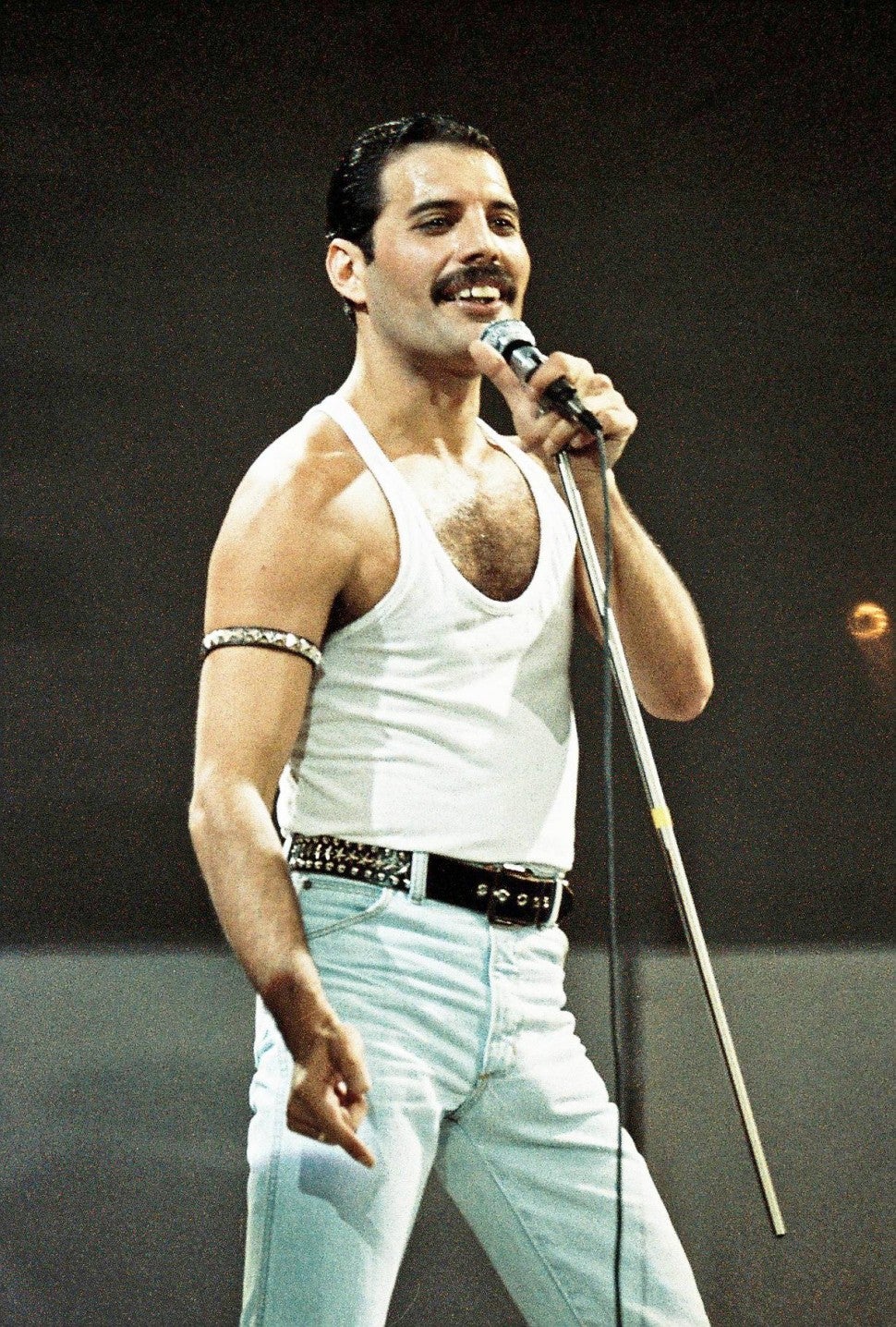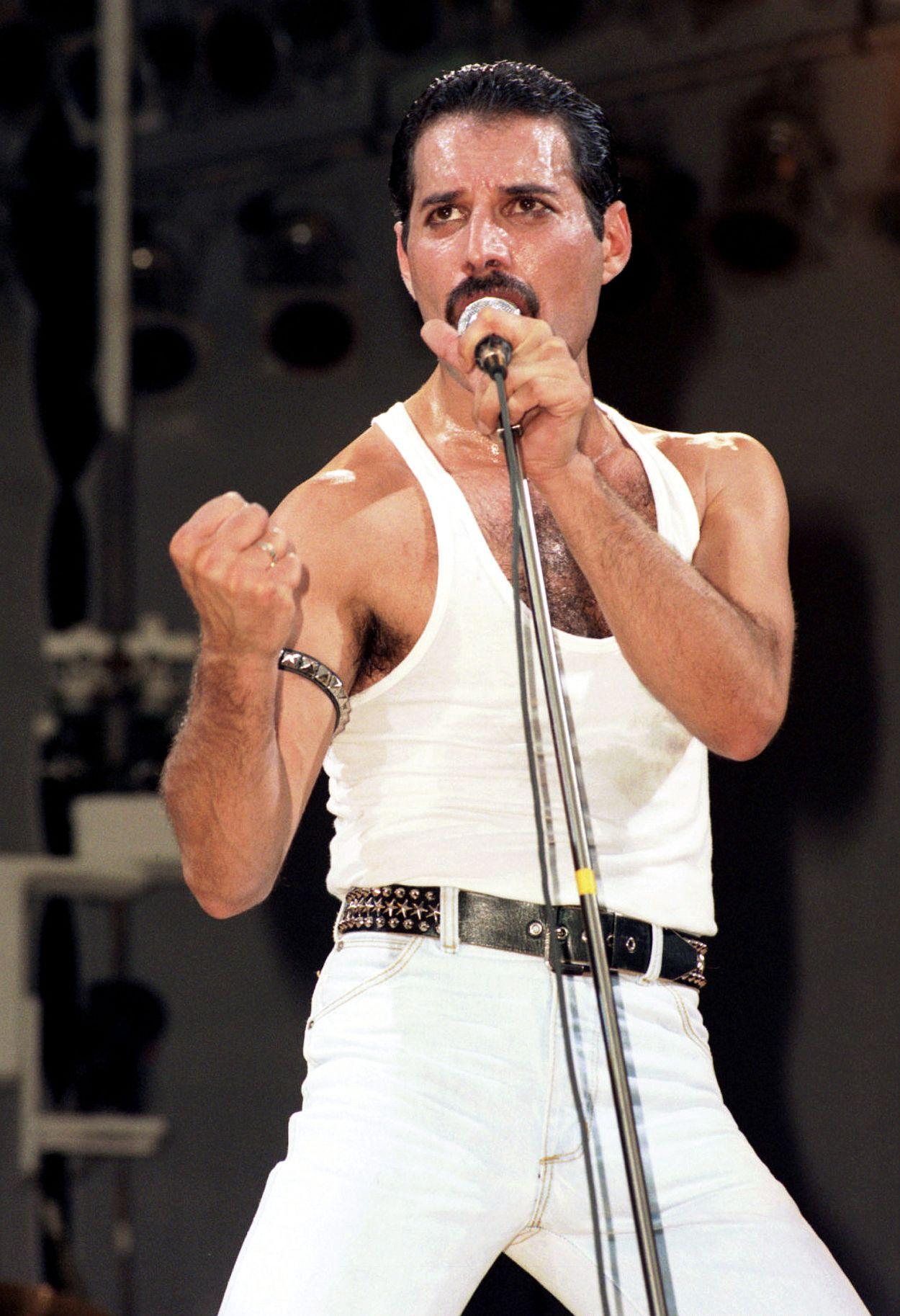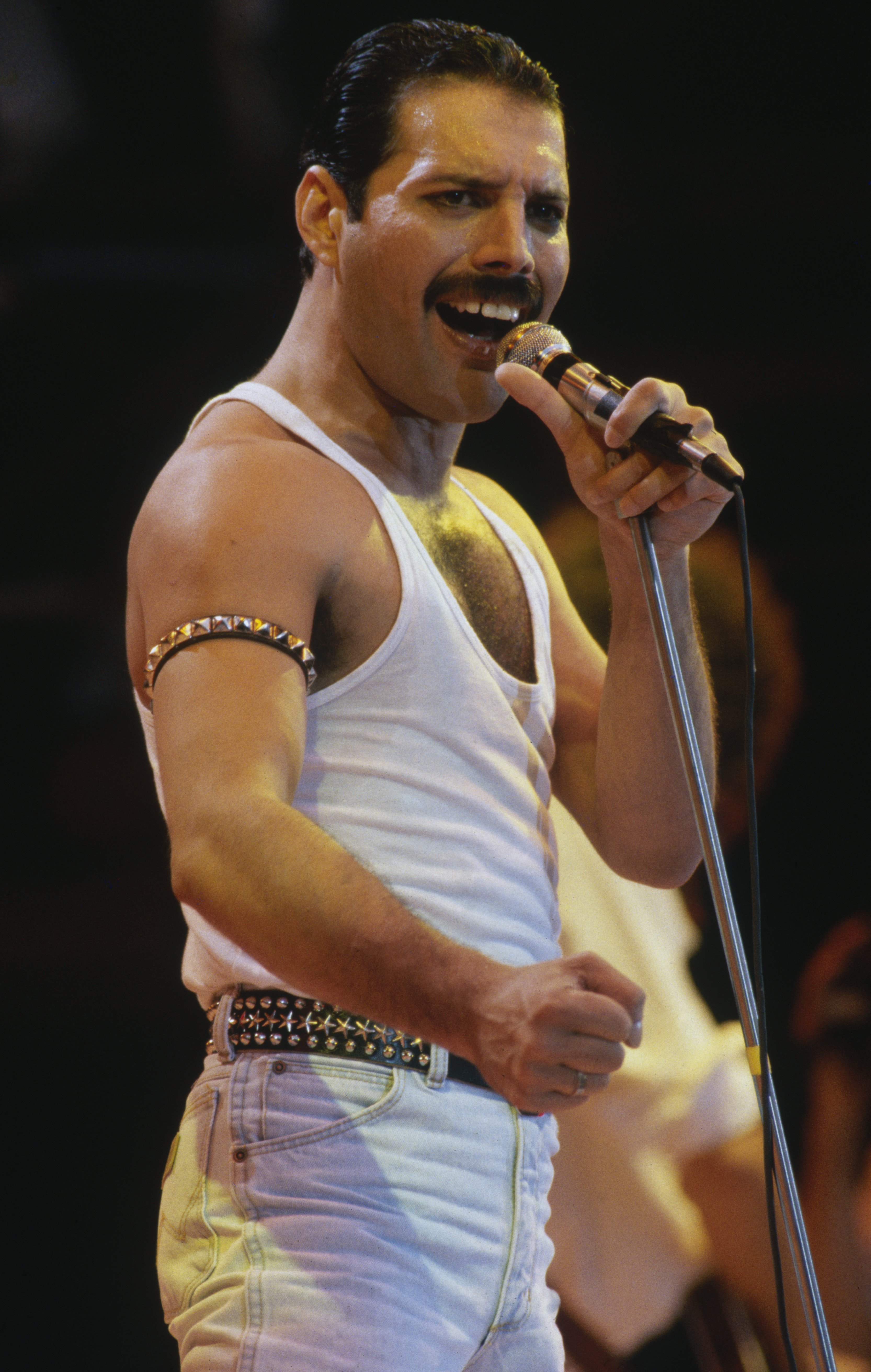Freddie Mercury - The Unforgettable Voice Of Queen
There are few names that truly resonate across generations, capturing the hearts and imaginations of people everywhere, and one such name, quite honestly, belongs to Freddie Mercury. He was, in a way, a singular force in the world of popular music, someone whose voice could soar to incredible heights and whose presence on stage was simply captivating. His unique way of performing, full of energy and a kind of joyful extravagance, made him a figure known across the globe as the lead singer for the band Queen, especially with the release of their hugely successful records.
This remarkable individual, you know, came from a rather distinct background, being a Parsi person born in Tanzania, and then later making his way to Britain. His journey through life, from his earliest days in Zanzibar to his passing in 1991 due to complications from AIDS, is a story that, in some respects, speaks volumes about talent, resilience, and living true to oneself. It is that journey, filled with musical triumphs and personal moments, that continues to inspire and move people today.
We can, therefore, take a closer look at the life and the incredible professional path of Freddie Mercury, the legendary vocalist of Queen. This exploration will, more or less, touch upon his early life, his remarkable achievements in music, his solo endeavors, and the lasting impact he left behind. It's about discovering the person who gave us so many classic songs and, very truly, redefined what a rock star could be.
- J Lo Ben Affleck
- Elementary School Sleepy Stickers
- Katharine Mcphee
- Zombies 4 Release Date
- Love Is Blind Couples Still Together
Table of Contents
- Biography - The Story of Freddie Mercury
- Personal Details and Background of Freddie Mercury
- Where Did Freddie Mercury Begin His Life's Song?
- Freddie Mercury's Early Years and Musical Spark
- How Did Freddie Mercury Shape Music History?
- The Sound and Spectacle of Freddie Mercury
- What Challenges Did Freddie Mercury Face?
- Freddie Mercury - Breaking Barriers and Living Authentically
- Remembering Freddie Mercury - A Lasting Echo
- How Do We Keep Freddie Mercury's Legacy Alive?
Biography - The Story of Freddie Mercury
Freddie Mercury, born Farrokh Bulsara on September 5, 1946, in Stone Town, Zanzibar, which is now part of Tanzania, came into the world with Parsi Indian parents. His childhood years were, in a way, mostly spent in India, where he attended school. This early period of his life, you know, laid some of the groundwork for the extraordinary individual he would become.
His parents, Bomi and Jer Bulsara, made the decision to send him away to a private school in India. This schooling lasted from 1955 until 1963, a significant portion of his formative years. It was during these times, apparently, that his interest in music began to truly blossom. He showed a very early inclination towards musical expression, something that would define his future path.
Then, in 1964, a big change happened for him and his family. They made the move, flying to England. This relocation marked a new chapter, bringing him closer to the vibrant music scene that was, in some respects, starting to take shape there. By 1966, he began his formal education at an institution in England, further setting the stage for his artistic development.
As time went on, Freddie Mercury became known for his truly spectacular singing voice and his very flamboyant way of being on stage. These qualities, you know, were central to his rise to fame. He became internationally recognized as the main singer for the band Queen, especially once their successful recordings started to come out. His presence was, arguably, unlike anyone else's at the time.
As the frontman for Queen, Mercury was, quite simply, captivating. He gave new meaning to the idea of showmanship, seeming to major in stardom itself. He left behind a collection of songs that will, in a way, never lose their standing as true classics, destined to be enjoyed forever. His impact on music and culture is, more or less, something that continues to be felt.
Personal Details and Background of Freddie Mercury
| Birth Name | Farrokh Bulsara |
| Date of Birth | September 5, 1946 |
| Place of Birth | Stone Town, Zanzibar (now part of Tanzania) |
| Parents | Bomi Bulsara and Jer Bulsara |
| Nationality | British (moved to England in 1964) |
| Known For | Lead singer of Queen, solo artist, songwriter, record producer |
| Musical Instruments | Vocals, piano |
| Death Date | November 24, 1991 |
| Cause of Death | Complications from AIDS |
Where Did Freddie Mercury Begin His Life's Song?
Freddie Mercury's life story, you know, began in a place that might seem a bit distant to many: the island of Zanzibar, which is located off the coast of Tanzania. It was there, in Stone Town, that he was born Farrokh Bulsara. This initial setting, in some respects, provides a unique backdrop to the global figure he would become. His heritage, being Parsi Indian, also added another layer to his personal narrative.
His early years were, quite naturally, shaped by his family and their decisions. His parents, Bomi and Jer Bulsara, chose to send him to a private school in India. This period, from 1955 to 1963, was a significant part of his childhood. It was during these years that, apparently, he started to show a very early and keen interest in music. This spark, so to speak, would eventually ignite into a full-blown passion that would define his entire professional path.
According to people who knew him back then, he possessed a rather remarkable gift: the ability to play melodies on the piano simply by listening to them. This skill, which is called playing by ear, suggested a deep, natural connection to music that went beyond formal training. It was, therefore, clear even then that he had a special aptitude for musical expression, something that would serve him incredibly well in his future endeavors.
Freddie Mercury's Early Years and Musical Spark
The journey of Freddie Mercury, from his birthplace in Zanzibar, really started to pick up speed when his family made the move to England in 1964. This transition, you know, placed him in a new environment, one that was, more or less, bustling with musical creativity and change. It was a time when the British music scene was undergoing its own transformation, and he was right there as it happened.
In 1966, he took another important step, beginning his education at an institution in England. This period was, in some respects, crucial for his development as an artist. While the details of his formal studies might not be as widely known as his later rock star antics, it was, apparently, a time of learning and growth that contributed to his eventual success. He was, very truly, building the foundations for his future.
His passion for music was, quite simply, evident from a very young age. This wasn't just a passing interest; it was, in a way, a deep-seated connection to sounds and melodies. The anecdotes from acquaintances about his ability to reproduce tunes on the piano just by hearing them paint a picture of a naturally gifted musician. This innate talent, you know, was a driving force throughout his life and career, allowing him to create and perform with a distinct brilliance.
How Did Freddie Mercury Shape Music History?
Freddie Mercury's contribution to music history is, in some respects, colossal. His impact stems not only from his incredible vocal range and power but also from his unique understanding of what a live performance could be. He didn't just sing songs; he, apparently, inhabited them, transforming concerts into grand theatrical experiences. This approach, you know, set a new standard for rock music and stage presence.
As the lead vocalist for Queen, he was the voice behind many of the band's most famous and enduring songs. Their music, which blended rock with operatic elements, pop sensibilities, and a touch of the dramatic, was, in a way, groundbreaking for the 1970s and 1980s. The band's success on the British charts during these decades was, therefore, a testament to their innovative sound and Mercury's commanding delivery.
He also, quite remarkably, took on solo projects, showing another side of his musical talent. These endeavors allowed him to explore different styles and collaborate with other artists, further cementing his reputation as a versatile and creative musician. His work, both with Queen and on his own, basically, left an indelible mark on the landscape of popular music, influencing countless artists who came after him.
The Sound and Spectacle of Freddie Mercury
The sound of Freddie Mercury was, in a way, truly unmistakable. His voice possessed a clarity and power that allowed him to move effortlessly through different vocal registers, from a deep rumble to a soaring, operatic high note. This vocal dexterity, you know, was a key component of Queen's sound and made their songs, in some respects, incredibly dynamic and exciting. It was, therefore, a very significant part of his appeal.
Beyond his voice, the spectacle of Freddie Mercury on stage was, quite frankly, legendary. He didn't just stand there and sing; he commanded the attention of every single person in the audience. His movements were, apparently, fluid and expressive, full of a kind of theatrical flair that was both entertaining and deeply engaging. He had a way of connecting with people, making each concert feel like a shared, special event.
He was, in a way, a master of showmanship, giving new meaning to the word itself. His performances were not merely concerts; they were, more or less, grand productions, filled with energy, emotion, and a touch of the dramatic. This commitment to the visual and emotional experience of music, you know, helped Queen become one of the most beloved and successful bands of their time, and it was, quite simply, thanks in large part to Freddie Mercury's vision.
What Challenges Did Freddie Mercury Face?
Freddie Mercury lived and thrived in an era when certain societal attitudes were, in some respects, far more widespread than they are today. Homophobia and racism were, apparently, much more prevalent during the 1970s and 1980s. Yet, in this environment, he stood out as the queer, South Asian frontman of a rock band that, you know, released some of rock's most enduring works. This position, therefore, presented a unique set of challenges.
Being a public figure with a distinct identity in such a time meant navigating a world that was not always accepting. He was, in a way, a pioneer, representing communities that were often marginalized or misunderstood. This fact, combined with the nature of his sexuality, were, quite frankly, two areas of his relatively short life about which he would intentionally keep things obscure. He chose to keep certain aspects of his personal world private, which was, more or less, a way of protecting himself and those close to him.
There was, for instance, a claim in a new biography that Freddie Mercury had a secret daughter. This kind of personal detail, whether true or not, highlights the layers of his private life that he kept away from public scrutiny. He was, in some respects, a very private person when it came to his personal relationships and background, despite his very public and flamboyant stage persona.
Freddie Mercury - Breaking Barriers and Living Authentically
Freddie Mercury was, quite literally, Britain’s first Indian rock star. This fact alone, you know, was a significant breaking of cultural barriers in the music industry. In a time when diversity in rock music, especially at the forefront of major bands, was not common, his presence was, in a way, a quiet revolution. He showed that talent and charisma could come from any background, regardless of ethnicity.
His identity as a queer man, particularly as the frontman of a hugely popular band, was, in some respects, also groundbreaking. In an era where being openly gay was, apparently, met with much more prejudice and misunderstanding, his very existence in such a prominent role challenged norms. While he chose to be private about his personal life, his public persona and artistic expression, you know, still spoke volumes and offered a kind of representation that was rare.
The combination of his South Asian heritage and his sexuality made him, therefore, a truly unique figure in rock music. He stood out not just for his voice and stage presence, but also for who he was, which, in a way, made him a symbol of individuality and authenticity. His life, in short, was a testament to living truthfully, even when facing a world that was not always ready to accept every facet of one's identity.
Remembering Freddie Mercury - A Lasting Echo
The memory of Freddie Mercury is, quite simply, something that continues to resonate deeply. His passing on November 24, 1991, marked 30 years since the death of the British singer, songwriter, and record producer. This date, you know, serves as a poignant reminder of the incredible talent that was lost too soon. There is, therefore, no wonder as to why he is remembered with such affection and reverence across the globe.
His death, which came at the age of 45, followed complications from the AIDS virus. This tragic event occurred just one day after he made a public announcement about his condition. This revelation, you know, brought a very human and vulnerable side of the rock icon to the forefront, reminding everyone of the personal struggles he faced. His honesty, in some respects, was a powerful moment in itself.
The legacy he left behind is, in a way, truly immense. His songs, both with Queen and from his solo efforts, are still considered classics and are played constantly around the world. They have a timeless quality that ensures they will, more or less, live on forever. His artistry, therefore, continues to touch new generations of listeners, ensuring his voice and music remain a vital part of our cultural fabric.
How Do We Keep Freddie Mercury's Legacy Alive?
Keeping Freddie Mercury's legacy alive is, in some respects, a collective effort, and it happens in many ways. For instance, Adam Lambert has made sure to honor the memory of the late Queen frontman. He, along with original band members Brian May and Roger Taylor, continues to perform, closing out their shows with a nod to Mercury's enduring spirit. This continuation, you know, helps introduce Queen's music to new audiences while paying homage to its original voice.
There are also many other ways to celebrate his life and work. For example, celebrating the legendary Freddie Mercury’s birthday often involves revisiting his solo official music videos, watching interviews, and enjoying captivating episodes of "Queen The Greatest." These resources, you know, allow fans old and new to connect with his artistry and personality in a very direct way. It's, therefore, a constant reminder of his brilliance.
The enduring appeal of his music is, quite frankly, a powerful force in itself. People continue to learn about the life and professional path of Freddie Mercury, the lead singer of Queen and, arguably, one of the greatest singers in the history of popular music. Discovering his birth name, learning about his childhood, and exploring his musical achievements, all contribute to keeping his memory vibrant. His influence, in a way, is a constant presence in the world of music.

The Most Unforgettable, Iconic Looks From Freddie Mercury -- Pics

Freddie Mercury iPhone Wallpapers - Top Free Freddie Mercury iPhone

15 Facts About Freddie Mercury’s Whirlwind Life & Career